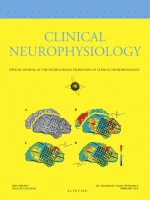Sridevi Sarma, an associate professor in the Department of Biomedical Engineering and associate director of the Institute for Computational Medicine, is the principal investigator on one of six projects to receive a two-year seed grant from The Science of Learning Institute at the Johns Hopkins University. The project titled, “How can we characterize individual differences in learning behaviors as a function of motivation?” is an interdisciplinary study that addresses interactions among motivation, attention, learning, working memory, and cognitive control. The study, which is a collaboration with Susan Courtney, a professor in the Department of Psychological and Brain Science, could positively impact educational practices by improving classroom instruction through computer-based learning. Read the full project proposal here.
The Science of Learning Institute was founded in 2013 to support interdisciplinary research that seeks to understand the ability to learn. Sarma’s research project is a recipient of the fifth round of seed grants from the institute. Read the full story in The Hub.


 Research from the lab of
Research from the lab of